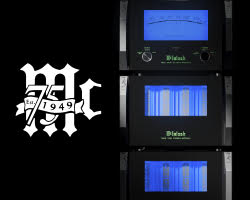New Hifi Pig contributor James Fleming does a bit of Soul Searching and is likely to ruffle a few feathers along the way.
“Rock n’ roll is a raw wail from the bottom of the guts,” Lester Bangs, 1981
That wail is what they call “passion,” “authenticity,” or “soul.” That ever-elusive and indefinable IT, that something that can’t be pinned down or mass produced. The human factor. And it could be anything: the death-howls of a mangled guitar, or an intricate tickling of the ivories. The poetic musings of an unsung hero of the underground, or a volume-distorted rave.
And it’s that wail that gets rock n’ roll aficionados of a certain vintage misty-eyed with nostalgia as they recall the sixties, seventies and eighties. That wail is part of the attraction, the memory, the myth. Even those of us who weren’t there, who couldn’t possibly have been a part of the generations that had the good fortune to experience this music as it happened, wax lyrical and, when the chemicals are right, philosophical, about a time we know very little about.
A time of distorted guitars, banshee vocals and drum solos that ruled our airwaves and TV screens with an iron fist for over fifty years. If you repeat a word often enough it becomes meaningless. And that’s what has happened to rock: it’s become meaningless. The powerchords have lost their power…
Not that they should have. The music may have long passed in to caricature and parody. But, the spirit should have remained.
The “wail,” that Mr. Bangs was referring to, as stated, is not necessarily the raw screech of disaffected youth; it’s the passion in the music, the soul. And when critics toss that word “soul” around, what they’re really talking about is the motivation. Whether it was manufactured to make quick cash, or crafted to make a statement, that’s the “soul” in the music. When someone says that pop has no soul, they’re wrong.
Pop has a soul, a motivation. Its motivation, is to make money. Has been since they invented it. Even Berry Gordy’s much beloved Motown was a self-styled “assembly line” of pop stars. Churned out a dime a dozen so as to rake in the cash.
There are of course exceptions. Brian Wilson made glorious pop music for the love of the art. The Beatles made pop music that has come to define the term. Even the much missed David Bowie reveled in the artifice of Ziggy Stardust and set the world alight with distinctly pop music. Albeit, very sophisticated pop music.
The musical hallmarks of pop have come to be synonymous with artifice and unoriginality, money grabbing and soullessness. Likewise, the earmarks of rock music have “authenticity” “passion” and “soul”.
The debate has raged for decades. For the most part, each side’s argument has been merely tastes butting heads. Which genre a person prefers, what characteristics and traits appeal to a person. For when you break them down, that’s all they are: characteristics, and traits.
The distorted guitar and the macho drumming are, undoubtedly, a traditionally “ballsier” sound than say, a synthesiser and a drum machine. But are they more authentic? No.
It’s not the instrument, the machine, that makes the music. It’s the person. A person frets the strings, pounds the skins, pushes the buttons and sets the dials. It’s the creativity that MAKES the music; that gives it that power.
The idea that any one set of characteristics is more quote-un-quote “authentic” has only one leg to stand on, and that’s tradition.
Guitar, bass, drums and vocals. The traditional instrumentation of a band. Not just a rock band, but country, reggae, pop and countless other genres and sub-genres. The reason that guitars are held up as “real” while synthesisers are “artificial” is TRADITION.
“Tradition is the death of creativity.” Dan Auerbach, The Black Keys
For years, decades, the instrumentation outlined above has been the norm. And there’s nothing wrong with that.
At the same time as Mötley Crüe ruled the Day-Glo eighties, with one guitar, one bass, a set of drums and a vocalist, Black Flag raged on, rebelling against all things banal and mediocre. Their tools? A guitar, a bass, drums and a vocalist. While Rick Astley polluted our airwaves, Sonic Youth unleashed album after album of a glorious alternative. Bon Jovi sold albums by the millions, but Dischord Records provided an outlet for the voices of disaffected youth. Inspiring thousands of kids across the world to get up off their collective arses and do something.
And that carries on to this day. Just because you don’t see it doesn’t mean it’s not there. Legions of bands, solo artists and fans are making exciting, interesting and new music. All with guitars and drums. They’re just not on the radio.
Tradition is on the radio. If you listen to rock radio, you’ll hear one of two things: the classics, or the new groups. Who all sound eerily similar… Because they’re rehashing tradition. Age old chord progressions and lyrical themes. All in the guise of being “authentic”.
The reason rock is seen as being “true” while pop is “fake” is down to several reasons: its roots in the blues as music played by oppressed slaves, its dominance for the last 50-some years, and its musical characteristics. Rock’s roots in the blues give it a certain working-class (though that’s not an accurate term for the generations of abuse suffered by blues originators) pomposity. It can look down on other genres as a sort of “self-made man”. Rising from the ashes of prejudice and persecution to become the cultural phenomenon of the 20th century. And as such, it has settled into a comfy little nook of tradition. In traditional Irish music, anything seen as deviating from the music’s original form is viewed as “un-pure”. Not always, granted. There have been many very interesting progressions in the world of trad’ over the years; fusion genres being the notable development. But, it took hundreds of years to reach that level of acceptance. Generations had to die out for this to be achieved.
The musical attributes of rock have become traditional. And, like any tradition, there are those bent and intent on preserving it. Hellbent on keeping it the way it has been for decades.
It’s as much this attitude that lends itself to the notion that rock is “real” music as the actual musical features: the distorted guitar, the howling vocals, the monstrous drumming. These features have come to signify authenticity simply because they are the way things were done throughout the latter half of the 20th century. The tradition.
And thus, it was born: rock is more authentic, more passionate, more soulful, than pop.
This idea birthed just as many genres as it set out to oppress. And if that’s not an irony; rock music as the oppressor rather than the liberator, then nothing is.
Punk, alternative, hardcore, one of the many things they have in common is that, originally at least, they all set out to escape the confined clutches of rawk. These genres used rock’s own weapons against it. The guitar, rather than an instrument of ego, became a humble noise maker or a creator of vivid soundscapes. The drums metamorphosed from a drooling time keeper/wrecker, into an instrument capable of providing texture, as well as the all important backbeat.
Others moved away from rock instrumentation altogether, gathering new and alien WMDs: the synth, vocal distorters and the oft-maligned drum machine. These seemingly unearthly instruments were instantly deemed “passionless” and a mere imitation of the “real thing”. And they are misused just as atrociously as the guitar. Worlds of possibilities were opened up with the invention of these machines, and yet, music makers seem content to use them to create soundalike clones of yesterday’s fad.
Neither pop nor rock is more soulful than the other. And it’s certainly not down to the instrumentation or the musical characteristics of each genre. Look at the Rolling Stones and then say with a straight face that these are still “street fighting men.”
There’s just as much soullessness in rock as there is in pop. Just like there’s just as much soul in pop as there is in rock. Each genre as their own money grabbers, and they’re rife in both styles.
It’s just shame that the money is with the money grabbers. All we get to hear is what they put out, what they promote. The airwaves belong to them, as do the screens.
Thankfully, there’s a whole culture, a whole world with its own history, fashions and music for us to explore. With just a little bit of digging, the doorway can be found.
Whether the future of music is between the frets or an undiscovered setting on the dials remains to be seen. Maybe it’s some unholy combination of the two. One thing’s for sure: it’ll make all the right fans and piss off all the right people.
Just like rock n’ roll did in the first place. And just like the synth-wielding youths of 1978-1984 did. The old guard will change and a new one will step into its place. And, hopefully, we won’t march to the beat of the same drum. We’ll march to our own, individual beats. As was the original message of rock n’ roll decades ago: be yourself, for you have a soul.
James Fleming







































































































































































You must be logged in to leave a reply.